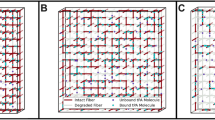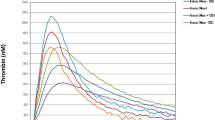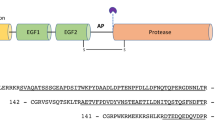Abstract
ALTHOUGH it seems probable that a fibrinolytic enzyme system is present in the blood of all vertebrates1–3, little work has been reported on systematic investigation of the system in the lower vertebrate classes.
This is a preview of subscription content, access via your institution
Access options
Subscribe to this journal
Receive 51 print issues and online access
$199.00 per year
only $3.90 per issue
Buy this article
- Purchase on Springer Link
- Instant access to full article PDF
Prices may be subject to local taxes which are calculated during checkout
Similar content being viewed by others
References
Niewiarowski, S., and Latallo, Z., Thrombos. et Diathes. haemorrh. (Stutg.).
Celander, D. R., and Guest, M. M., Amer. J. Cardiol., 6, 361 (1960).
Hackett, E., and Hann, C., Nature, 204, 591 (1964).
Fearnley, G. R., Balmforth, G. V., and Fearnley, E., Clin. Sci., 16, 645 (1957).
Flute, P. T., Brit. Med. Bull., 20, 195 (1964).
Author information
Authors and Affiliations
Rights and permissions
About this article
Cite this article
BLOFIELD, A. A Spontaneously Active Fibrinolytic System in Xenopus laevis which is further activated by Human Urokinase. Nature 206, 736–737 (1965). https://doi.org/10.1038/206736a0
Published:
Issue Date:
DOI: https://doi.org/10.1038/206736a0
This article is cited by
-
Comparative vertebrate fibrinolysis
Comparative Clinical Pathology (2010)
Comments
By submitting a comment you agree to abide by our Terms and Community Guidelines. If you find something abusive or that does not comply with our terms or guidelines please flag it as inappropriate.



